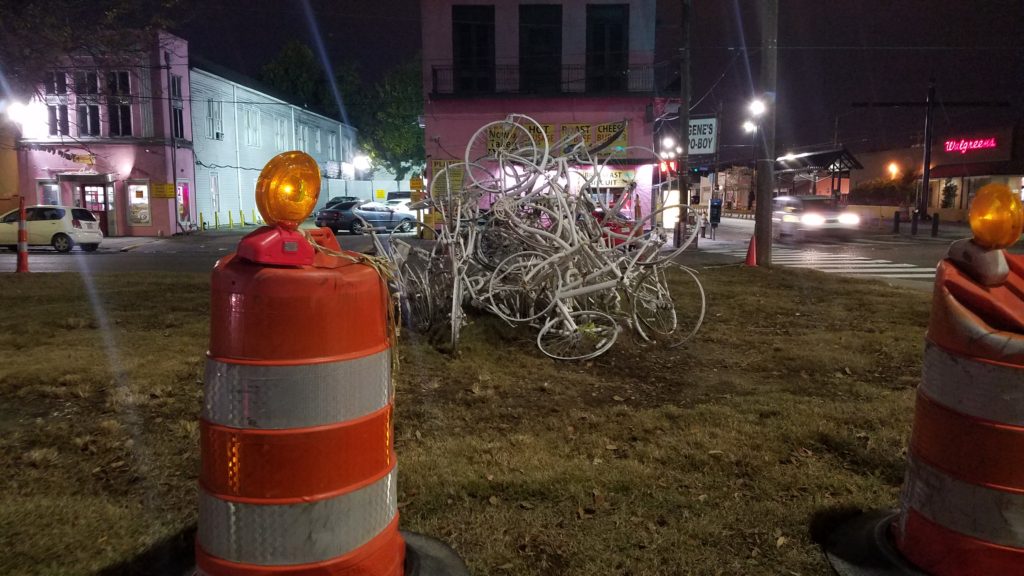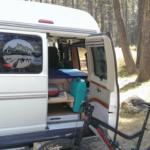America hates bikes, which is remarkable, really, because of how much Americans love them. In this, the land of the free, the bicycle represents our first taste of true freedom as children. A bicycle is an archetype for the perfect Christmas gift, and it evokes nostalgia for late summer evenings with friends, beyond the watchful eye of our parents. LeBron put it best: “it was a way of life. If you had a bike it was kind of a way to let go and be free.”
The truth is unambiguous: bicycles make for happier, healthier people. They improve urban quality of life. And they (along with trees) are pretty much the only tool we have to actually slow climate change. Bicycle commuting increased 60% in the last decade, and mountain bike sales are growing at 10% annually. People are into it; that is rad.
And so it is a shame that cyclists on the road rank somewhere between a squirrel and a dog, and according to a recent Australian study, a bit more like a cockroach. The study found that road rage toward cyclists grew from the instinctual response that people on bikes are something less than human.
This phenomenon is born out beyond the lizard brains of car commuters. In this country there is a long tradition of killing a cyclist with your car and going home to make dinner. Murder appears to be quite legal in America, as long as you kill a cyclist with a car and apologize.
“Nothing compares to the simple pleasure of riding a bike.” – President John F. Kennedy, before he was shot
Beyond regular, open aggression from motorists cyclists regularly conform to a transportation infrastructure designed to exclude them. Post-war planning directed interstate highways from the urban job centers to the distant culs-du-sac of the suburbs, so that white folks could hold good jobs but wouldn’t have to live near the scary black people.
This has gutted cities (and laid the foundation for urban displacement 2.0). It has created a reality that a car is necessary to commute to work, buy groceries, and get kids to school in much of the country – even in relatively high-density neighborhoods where things aren’t that far apart.
To suggest that we should reinvest in livable cities and sustainable transportation? Blasphemy, apparently. In the face of being unambiguously the right thing to do, bicycle infrastructure is the bane of mid-sized newspaper comment threads across the country and at the heart of my personal favorite conspiracy theory: that the UN’s initiative to improve global transportation efficiency (Agenda 21) is a Trojan Horse to establish a New World Order, impose Sharia law, establish a blue helmet occupying force, and, you know, definitely, come take all of our guns.
In spite of overwhelming evidence about the benefits (ecological, social, economic) of bicycle infrastructure and the recent enthusiasm for bicycling by Americans, America won’t have it. Get those bikes off the road!

Interestingly, at the same time that bicyclists are intimidated from American roads they are increasingly barred from American trails and forests. Over the last ten years and in Montana alone, cyclists have been excluded from about a 1,000 miles of trails where they have cherished access, contributed to stewardship, and pursued conservation solutions for decades.
In front country conversations, like where mountain biking drives rural economies left behind by boom and bust extractive industry, vitriol toward cyclists is more violent than the lawsuits in Montana. In California and Colorado, reports of booby traps and tripwires that target mountain bikers are becoming commonplace. The road rage and coal rolling that undermines widespread bike commuting is making its way to the trails just as mountain biking is being widely embraced as the best way to build confidence and healthy lifestyles in the smartphone generation.
The reality is that people love bikes because they’re fun to ride. The fact that they’re intuitive solutions for our economic, health, and environmental woes is an added bonus, and one that doesn’t carry obvious downsides. The only hope now, is that America will catch up with Americans.

